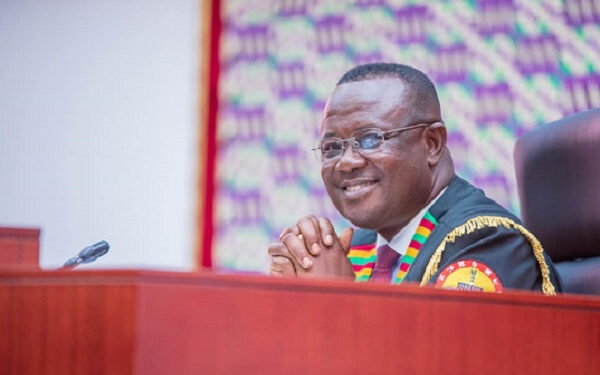A nine-member review panel of the Supreme Court has dismissed a review application seeking a reverse of the apex court’s judgement that a Deputy Speaker of Parliament has a voting rights while presiding.
The court presided over by Justice Jones Dotse in its short ruling said the application for review falls short of the threshold needed to warrant a review.
The court dismissed the application as unmeritorious.
The Applicant contends that, there is a miscarriage of justice in the judgement which warrant that it is reviewed.
Diana Asonaba Dapaah, a Deputy Attorney General, arguing on the point of law said no new matter or exceptional circumstances had been raised to warrant a review.
She said, the application is unmeritorious and abuse of court processes and prayed for the application to be dismissed.
The panel of Justice Jones Dotse, Justice Nene Amegatcher, Justixe Prof. Nii Ashie Kotey, Justice Mariama Owusu, Justice Lovelance Johnson, Justice Gertrude Torkornoo, Justice Clemence Honyenuga, Justice Henrietta Mensah-Bonsu and Justice Yonni Kolendi subsequently dismissed it.
Review notion
Private Legal practitioner Justice Abdulai has filed an application at the Supreme Court seeking a review of the court’s judgement that, a Deputy Speaker of Parliament has a voting right while presiding.
The Applicant contends that, there is a miscarriage of justice in the judgement which warrant that it is reviewed.
A seven member panel of the apex court presided over by Justice Jones Victor Dotse in a unanimous judgement on March 9, 2022 said the budget approval of November 31 was valid.
In a motion on notice for review of the apex court anchored on Article 133 of the 1992 Constitution and Rule 54(a) of C.I16, the plaintiff is seeking a review of the ordinary panel’s judgement on March 9
The Applicant contends that, the following are the exceptional circumstances that the court should look at and review their decision.
a) Failure of the Ordinary Bench to consider the legislative antecedents in Ghana on the original vote of a Deputy Speaker (or any person) presiding in Parliament, as borne out in the 1957 Constitution (Order in Council); the Parliament Act, 1965, (Act 300); and continuous effect of the Constitution (consequential and transitional) provisions Decree, 1969, (NLCD 406);
b. Failure of the Ordinary Bench to consider Article 297(h) of the Constitution and Section 10 of the Parliament Act, 1965, (Act 300) in interpreting Articles 295(2) and 104(2) of the Constitution, which consequently led it to the holding that a reference to the Speaker of Parliament cannot be a reference to the Deputy Speaker of Parliament;
c. Failure of the Ordinary Bench to consider the saving clause in Article 104(1) in interpreting Articles 102 and 104(1) of the Constitution, whichconsequently led it to the holding that a Deputy Speaker can be countedaspart of quorum in determining matters in Parliament.
d. Failure of the Ordinary Bench to consider Article 298 of the Constitution, which consequently led it to the wrong assumption of jurisdiction in filling up a perceived gap in the Constitution by means of interpretation; and striking down Order 109(3) of the Standing Orders of Parliament.
Ordinary Bench
The panel that sat on the matter were Justice Victor Jones Dotse (presiding), Justice Emmanuel Yonny Kulendi, Justice Nene A. Amegatcher, Prof. Nii Ashie Kotey, Justice Mariama Owusu, Justice Avril Lovelace-Johnson, and Justice Clemence Jackson Honyenuga.
The application for review has been fixed for April 25, 2022.
Judgement
Per the judgment of the Ordinary Bench, the Court decided that upon the true and proper interpretation of Articles 102, 104(1), 104(2), 295(2), 95, 96 and chapter 10 of the Constitution in general:
a. The Deputy Speaker could count himself for purposes of a quorum, and is entitled to an original vote;
b. That Order 109(3) of the Standing Orders of Parliament of the Republic of Ghana is inconsistent with the 1992 Constitution;
c. That the decision of Parliament approving the Government of Ghana budget and economic policy for 2022, taken on the 30th November, 2021, with the Deputy Speaker as part of the quorum of Parliament, is valid;
d. That Ghana’s position on the right of the presiding officer of Parliament to vote on a matter is in consonance with the Lawor practice in the Commonwealth and Anglo-American Jurisdictions as the United Kingdom, United States, Canada, Australia, Kenya, and South Africa.
e. That the decision of parliament approving the budget and economic policy of Government on 30th November, 2021, was valid.
Source: Ghana/Starrfm.com.gh/Murtala Inusah




